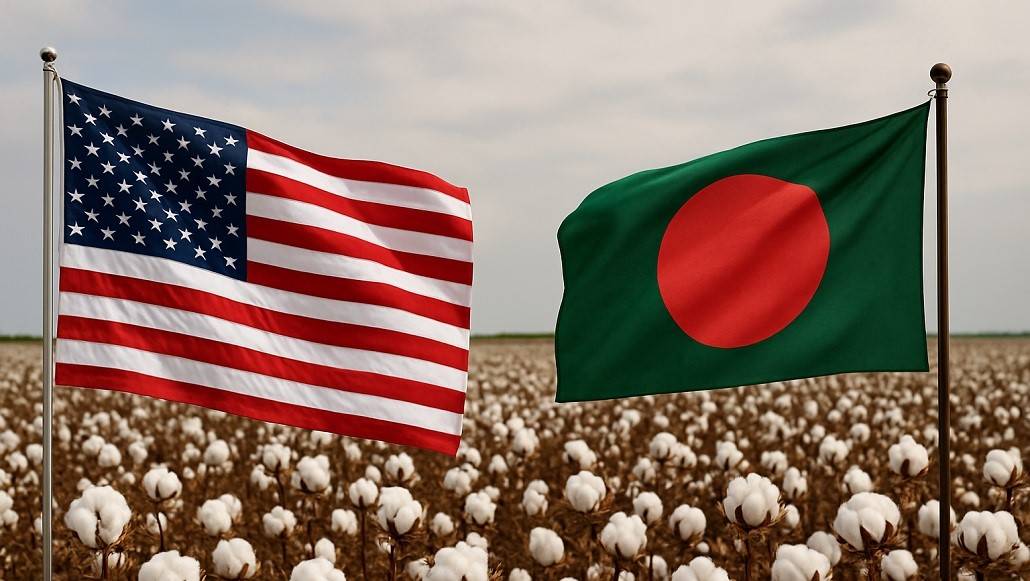In a recent strategic meeting in Dhaka, Bangladesh’s garment manufacturers collaborated with US cotton farmers to develop a plan that aims to create a direct supply chain, eliminating profit-driven middlemen. This initiative seeks to connect US cotton growers directly with textile mills in Bangladesh, streamlining the procurement process.
The discussion was facilitated by AmeriBangla Corporation, a Bangladeshi-American enterprise. Aswar Rahman, CEO of AmeriBangla, highlighted that while US cotton currently costs 5 to 6 cents more per pound compared to imports from West Africa, Brazil, and India, establishing direct procurement from US farmers could effectively close this price gap. Additionally, he emphasized that this approach could provide superior quality cotton.
This development occurs against the backdrop of stalled tariff negotiations between Dhaka and Washington. Rahman pointed out that US cotton has less than 2% waste, in stark contrast to nearly 10% from alternative sources. He explained, “Every 1% increase in waste results in a 1.5% loss in production. Plus, its full traceability provides a major compliance edge for exporters targeting Western markets,” as reported by various media in Bangladesh.
Notably, US cotton exports to Bangladesh have dwindled to a mere 6% of total imports during the first seven months of the last fiscal year, raising concerns among US cotton growers. Frustrated by obstacles to market access and a diminishing share of exports, these farmers are now prepared to circumvent traditional merchant networks, provided that Bangladesh can establish bonded warehousing and an efficient ordering process.
In return for facilitating this direct supply chain, these influential farmers—who have considerable political clout across 17 southern US states—would advocate to Congress for reduced tariffs on Bangladeshi garments. “With the US Congress holding the final say on trade terms, farmers’ backing could become a powerful tool for Bangladesh,” noted Rahman. “However, the opportunity is fleeting. August is when Congressmen are in their home districts and most receptive to constituent influence.”
To further support this initiative, AmeriBangla plans to unveil an overseas showroom dedicated to showcasing apparel made from US cotton. This strategic move anticipates that future US trade policies may encourage the use of domestically sourced fibers in global exports, ultimately benefiting both US farmers and Bangladeshi manufacturers.

































